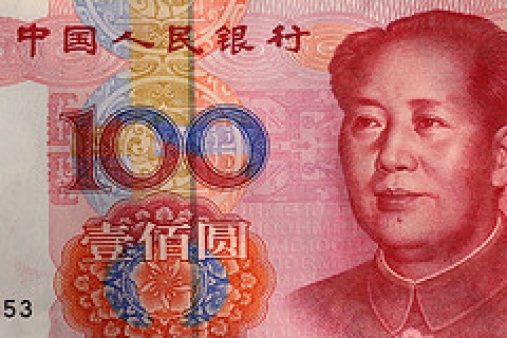
HSBC the first foreign bank to complete two-way cross-border RMB lending
Under a new pilot programme in Kunshan.
HSBC became the first foreign bank in mainland China to successfully complete a two-way cross-border RMB lending transaction under a new pilot programme in Kunshan. The transaction was completed for Kunshan President Enterprises Food Company Limited (Kunshan President), a subsidiary of Uni-President Group.
The city of Kunshan, in Jiangsu Province, was approved by regulators in August to launch a series of cross-border RMB pilots via its "Kunshan Deepen Cross-Strait Industrial Cooperation Experimental Zones" which includes RMB cross-border intra-group two-way lending for Taiwanese corporates in the zone.
Helen Wong, Deputy Chairman, President and CEO of HSBC China, said: “The cross-border RMB pilot programmes in Kunshan will further enhance RMB usage offshore and encourage RMB flow between onshore and offshore markets. Two-way cross-border RMB lending enables corporates to utilise their onshore and offshore RMB funds more efficiently with better flexibility, optimise allocation of intra-group RMB funds, reduce external borrowing, and improve returns on capital. Combining our wealth of experience in cross-border RMB business with our extensive network and expert teams in mainland China and Taiwan, HSBC is well-placed to help Taiwan-invested corporates in the pilot zone to conduct this new business and meet their demand for managing RMB funds.”
HSBC China has set up a master account for cross-border RMB two-way lending for Kunshan President, a prominent Taiwan-invested company in Kunshan, and helped it obtain regulatory approval for an intra-group two-way lending quota totalling RMB 1.49 billion. The first cross-border transaction has been completed, with RMB 10 million transferred to this master account from its related overseas company.
Since its entry into mainland China in 1992, Uni-President Group has invested in around 50 companies, predominantly in the food industry. The company posted revenues totaling RMB 21.4 billion in 2012, and has a strong demand for RMB funds. HSBC’s services will enable Kunshan President to more efficiently utilize RMB funds from its member companies in mainland China and overseas.
John Li, President and Chief Executive Officer, HSBC Bank (Taiwan) Limited, said: “The pilot measures targeting Taiwanese corporates provide a channel for the repatriation of Taiwan’s fast-growing RMB funds, while offering new opportunities in RMB treasury business for Taiwanese banks. As a result, Taiwan’s emerging offshore RMB market will receive a boost and the new policy move will make cash management more convenient and efficient for Taiwanese companies.”
As part of the pilot zone for industry cooperation between mainland China and Taiwan, a range of pilot projects for cross-border RMB services was approved in August. These include two-way RMB lending to facilitate cross-border RMB lending and borrowing at the inter-company level for the pilot zone’s Taiwanese companies which can now employ surplus funds to support business growth and better meet their expansion needs in the Mainland. This innovative initiative will also make the establishment of cross-border RMB cash pools a feasible proposition.
At the same time, HSBC has also completed its first cross-border RMB remittance for individuals, another pilot initiative that has been approved for the Kunshan Experimental Zone. HSBC helped an overseas resident in the Kunshan Experimental Zone transfer his RMB income to his RMB account in Taiwan. This cross-border RMB remittance service, under the personal current account, provides greater convenience to mainland residents, Hong Kong/Macau and Taiwanese customers, as well as foreigners, in the pilot zone with cross-border remittance needs.
HSBC has been a leading international bank in cross-border RMB business and remained at the forefront of market developments. With an RMB service network covering more than 50 countries and territories around the world, HSBC was the first international bank to perform cross-border RMB settlement in six continents.






















 Advertise
Advertise








